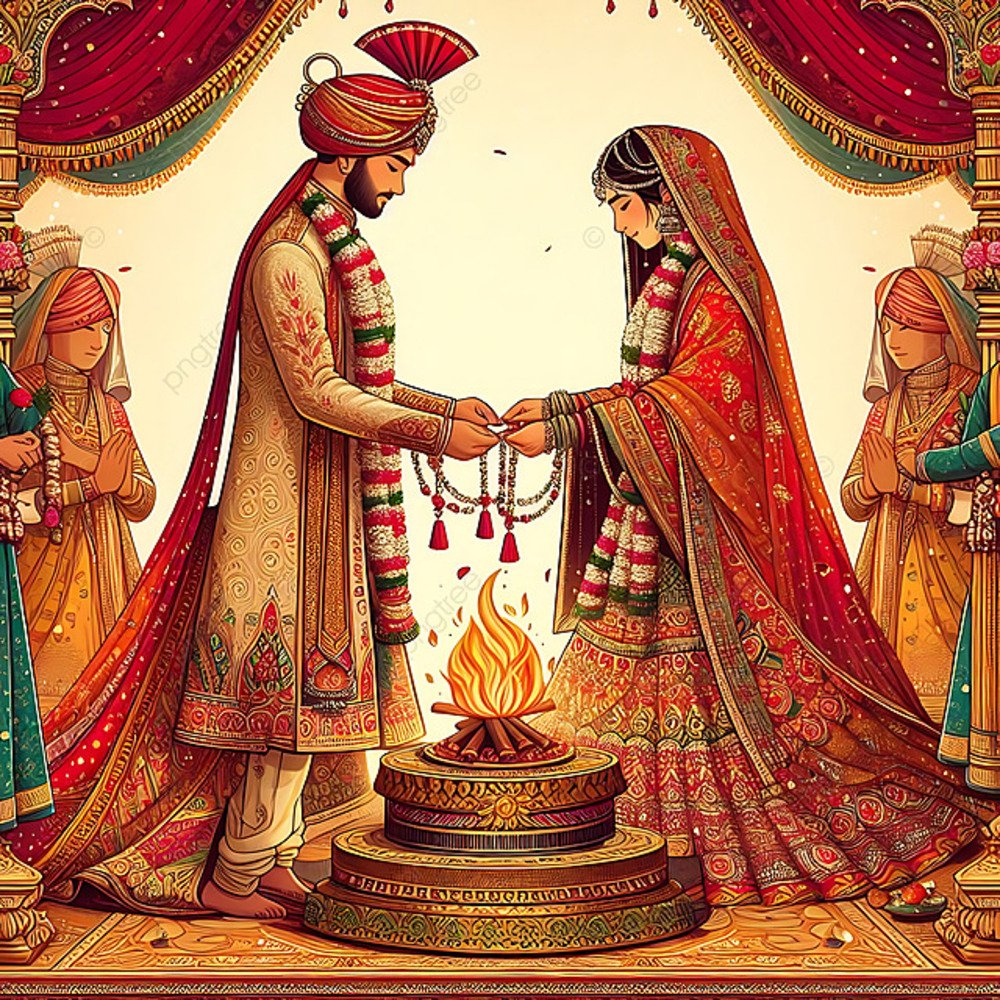Indian weddings are steeped in tradition, symbolism, and rituals that have been passed down through generations. Among these traditions, the concept of Gotras plays a pivotal role, rooted deeply in ancient Vedic culture. Gotras, essentially ancestral lineages, have significant implications in marriage, ensuring the continuation of sacred traditions while preserving the cultural fabric.
What Are Gotras?
Gotras trace their origin to ancient sages or Rishis, who are considered the founding fathers of specific familial lineages. Every individual born into a Hindu family inherits their Gotra, which is passed down through the paternal line. Gotras serve as identifiers of ancestry, connecting families to their spiritual and genealogical roots.
The Role of Gotras in Indian Weddings
Marriage in Indian culture is not just a union of two individuals but also of families, traditions, and lineages. Gotras play a critical role in this union for the following reasons:
- Avoiding Sapinda Relationships:
- Sapinda refers to individuals who share a common ancestor up to a certain number of generations. Marrying within the same Gotra is traditionally prohibited to prevent consanguinity (marriage between close relatives).
- This rule ensures genetic diversity and upholds the health and vitality of future generations.
- Maintaining Lineage Purity:
- By prohibiting intra-Gotra marriages, the sanctity of the ancestral lineage is preserved.
- It reinforces the belief that each Gotra has its distinct identity and should not be diluted by intermarriage.
- Cultural and Spiritual Beliefs:
- Gotras are associated with specific Rishis, who are considered the spiritual ancestors.
- Marrying outside one’s Gotra is believed to respect and honor these spiritual legacies, ensuring that sacred familial traditions are upheld.
How Gotras Influence Wedding Rituals
- Matching of Gotras:
Before finalizing a marriage alliance, astrologers and family elders ensure that the bride and groom belong to different Gotras. This is often verified alongside horoscope matching. - Ritualistic Significance:
During marriage rituals, references to the Gotras of the bride and groom are often made to invoke blessings from the ancestral sages. - Community Traditions:
Different communities may have unique interpretations and rules around Gotras, adding to the diversity of Indian wedding customs.
Modern Interpretations
While the importance of Gotras is still upheld in many Indian families, modern times have seen a shift in practices:
- Inter-caste and inter-Gotra marriages are becoming more common, especially in urban settings.
- Some communities have adapted Gotra traditions to be more inclusive while still honoring their ancestral roots.
Conclusion
Gotras are more than just identifiers—they symbolize the deep cultural and spiritual heritage of Indian society. In weddings, they serve as a bridge between tradition and modernity, ensuring that the sacred values of lineage, diversity, and unity are respected. As Indian weddings continue to evolve, the role of Gotras remains a testament to the enduring legacy of ancient customs in contemporary times.
Leave a Reply
You must be logged in to post a comment.

